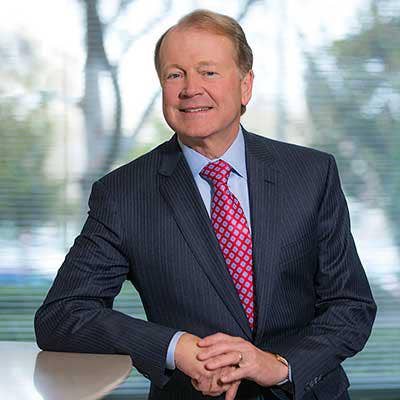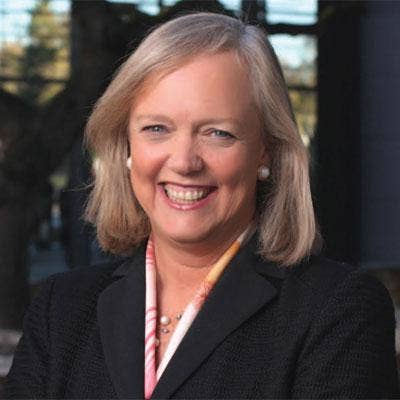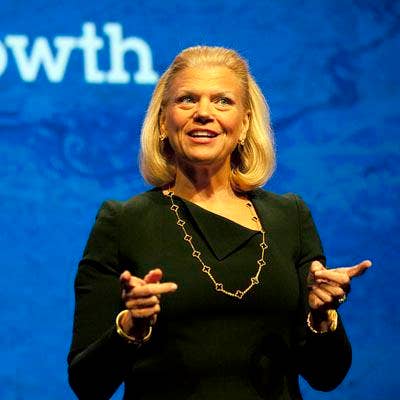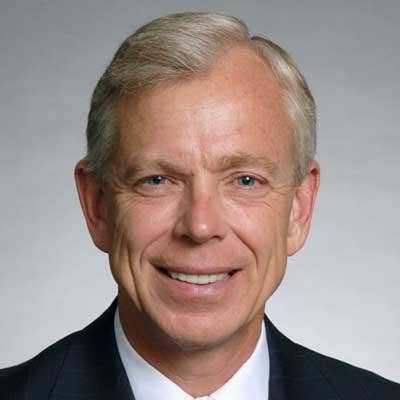The 20 Coolest Cloud Infrastructure Vendors Of The 2015 Cloud 100

Coolest Cloud Infrastructure Vendors For 2015
In 2014, the cloud infrastructure wars got hotter, and there were some casualties. It’s getting to the point where it seems that a cloud vendor needs to be ready to invest a fortune just to pop its head out of the sand. But while this trend favors the big boys, and the tech giants certainly do dominate, there are a few upstarts on this list that think they can compete.

Atlantic.net
Marty Puranik
CEO
The company founded in the mid-1990s as a VAR and system integrator transitioned into a dial-up ISP, then morphed into a co-location services provider before virtualizing its servers in 2010 to begin offering customers cloud services. Atlantic.net gets kudos for launching its first West Coast data center at the end of 2014 by donating all of the first month’s proceeds to a local homeless charity.

AT&T
Randall Stephenson
CEO
AT&T took a bold and surprising step a few years back when it made the decision to introduce OpenStack to power some of its cloud data centers. Open-source technologies were once anathema to the telecom giant; now AT&T is an active member of the OpenStack development community and runs the cloud operating system in 10 of its data centers. With a powerful infrastructure base, AT&T is working on making its cloud a leading platform for enabling unified communications across products from multiple vendors.

CenturyLink
Glen Post
CEO
A visionary on Gartner’s 2014 Magic Quadrant, telecom giant CenturyLink has been aggressively pursuing a cloud strategy that gained steam in recent years with acquisitions of Tier 3 and Savvis. The company recently opened the doors to an expansive Cloud Research Center in Seattle where it hopes to develop the next generation of cloud technologies to power its growing global network of data centers.

Cisco Systems
John Chambers
CEO
Cisco has ramped up its cloud-of-clouds strategy and is racking up partners in its InterCloud ecosystem. The company has leveraged its connectivity expertise to bring to market an innovative network of public and private cloud providers. InterCloud, enabled by the Cisco Fabric technology, is proving attractive to solution providers interested in building hybrid clouds for their customers.

CloudSigma
Robert Jenkins
CEO
This Swiss IaaS provider offers highly available and flexible hybrid cloud servers and cloud hosting solutions through its channel partners in Europe and the U.S. And in an age where data centers are becoming some of the biggest consumers of power, and thus some of the biggest contributors to climate change, it’s nice to see CloudSigma champion an environmentally friendly business model that makes available carbon-neutral servers.

Datapipe
Robb Allen
CEO
Datapipe in January snapped up GoGrid, a San Francisco-based IaaS provider that offers a common architecture across its public and private portfolios and specializes in crunching big data sets. The advanced analytic capabilities available through GoGrid’s platform complement a focus on enabling rapid provisioning of services through its unique ’one-button deploy’ process.

DigitalOcean
Ben Uretsky
CEO
Startup Digital Ocean wants to compete with the powers-that-be in the cloud infrastructure market by offering a cloud that’s friendly to developers and replete with scalable virtual private servers, called ’droplets’ in company lingo. DigitalOcean is trying to make waves in an expensive category in which to compete, but has plenty of investors who are buying into the strategy of simplifying the complexities of Web infrastructure and focusing on user experience.

ElasticHosts
Richard Davies
CEO
ElasticHosts brings to market a twist on the consumption-based pricing model, which the company claims can save users and channel partners significant cash. The product, Elastic Containers, is the first cloud offering to be truly priced on consumption, according to the IaaS vendor. ElasticHosts estimates a typical cloud workload uses only 50 percent of the capacity that the customer paid for because of non-peak hours or because capacity was overestimated to handle heavy load times.

Equinix
Stephen M. Smith
CEO
Equinix doesn't exactly offer customers cloud infrastructure as much as it enables it. As a premium-tier, network-neutral host with more than 100 data centers around the world, many a private cloud and some big public clouds are running on Equinix servers. Last year, the company launched the Equinix Cloud Exchange, enabling high-speed, low-latency and secure connections to many of the world’s biggest public and private clouds. The company earlier this month expanded its professional services expertise with the acquisition of cloud solution provider Nimbo.

Hewlett-Packard
Meg Whitman
CEO
Last year, HP launched Helion, its entrant to the enterprise cloud market. More recently, the tech giant released its first fully supported commercial release of HP Helion OpenStack with Cloud Foundry, along with an enterprise-grade private cloud storage offering. HP’s new OpenStack-based products empower the company’s channel partners to build the kind of hybrid clouds attractive to enterprise customers.

IBM
Virginia Rometty
CEO
More than a year after the acquisition of SoftLayer, IBM’s Cloud Services division represents one of the most-promising vectors of growth for the company. The $2 billion SoftLayer purchase has imparted on IBM 7 percent of the public cloud market. IBM is seeking to differentiate its cloud as a high-end enterprise platform favoring reliability, performance and security over bargain-basement prices.

Internap
Eric Cooney
President, CEO
At last year’s OpenStack Summit in Atlanta, Internap launched its next-generation public cloud. AgileCloud is a high-performance offering that empowers developers with the native OpenStack API, is available through the OpenStack Marketplace, and can be rented by the hour. The company recently revamped its channel program and is heavily investing in training tools and programs to bolster the capabilities of its partners.

Microsoft
Satya Nadella
CEO
Microsoft Azure is the fastest-growing public cloud, and perhaps the only serious challenger to Amazon Web Services’ dominance. Under Nadella’s leadership, the software giant has redoubled its commitment to Azure, and now controls 10 percent of the cloud market.

NTT Communications
Akira Arima
CEO
Another subsidiary of parent NTT Corporation, NTT Communications was a leader in bringing software-defined networking to the cloud. The company currently has a huge global footprint and offers innovative infrastructure in its 130 data centers around the world, including its Arcstar Universal One VPN network. U.S. subsidiary NTT America launched its first channel partner program for its cloud last year.

OrionVM
Sheng Yeo
CEO
This IaaS provider was founded in an Australian dorm room by three college students in 2010. Since then, OrionVM has done well in the Australian IaaS market with its unique cloud architecture modeled after mainframe computers. Last year the company set up shop in San Francisco to bring its wholesale cloud to the U.S. through a pure channel play that encourages partners to white-label the product.

ProfitBricks
Achim Weiss
CEO
ProfitBricks is looking to differentiate itself with an IaaS service built on Infiniband, a supercomputing technology that allows speedy networking connections between virtual machines. The startup says the technology gives it a 2X performance advantage over name-brand competitors when accounting for processor, storage and network speeds.

Rackspace
Taylor Rhodes
President, CEO
Last year was a tough one for Rackspace. But after a fruitless stint as a much-discussed acquisition target, the cloud and server hosting provider has recommitted to its managed cloud strategy and Fanatical Support customer service philosophy. When Rackspace removed itself from the M&A market, Rhodes concurrently was appointed to the helm to drive forward the strategy in an increasingly competitive IaaS market.

Sherweb
Peter Cassar
CEO
This Canadian provider of cloud-based Microsoft services launched its first IaaS product in 2014, one that looks to differentiate itself by price and performance in an ultra-competitive market. The company claims that when provisioning the same resources, the SherWeb Performance Cloud achieves 50 percent better overall server performance compared to market leader Amazon Web Services, and when price is added to the equation, it stacks up even more favorably.

Verizon Terremark
Lowell McAdam
Verizon CEO
This subsidiary of Verizon Communications had a tough go hosting the healthcare.gov website, ultimately losing the high-profile federal gig to HP. But Verizon still offers an innovative and flexible cloud that comes in several variants for differing use cases, running on software and tools developed in-house. Gartner classified Terremark as a Visionary in the 2014 IaaS Magic Quadrant.

Virtustream
Rodney J. Rogers
Chairman, CEO
What makes Virtustream unique as a cloud service provider is that it developed an enterprise-grade cloud management platform and it offers that platform, xStream, as a managed service and as stand-alone software. Virtustream engineered xStream with enterprises running mission-critical production applications in mind.